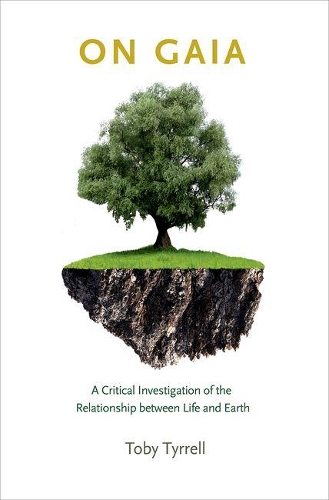
On Gaia: A Critical Investigation of the Relationship between Life and Earth
(Hardback)
Publishing Details
On Gaia: A Critical Investigation of the Relationship between Life and Earth
By (Author) Toby Tyrrell
Princeton University Press
Princeton University Press
1st October 2013
United States
Classifications
Tertiary Education
Non Fiction
Zoology and animal sciences
Botany and plant sciences
550
Physical Properties
Hardback
320
Width 152mm, Height 235mm
680g
Description
One of the enduring questions about our planet is how it has remained continuously habitable over vast stretches of geological time despite the fact that its atmosphere and climate are potentially unstable. James Lovelock's Gaia hypothesis posits that life itself has intervened in the regulation of the planetary environment in order to keep it stab
Reviews
"Tyrrell's story is very informative and the reader will learn many fascinating stories of an organism's adaptation to an environment (rather than an environment conforming to an organism's need)."--Jonathan DuHamel, Arizona Daily Independent "A systematic, dispassionate, retrospective examination of Gaia... Tyrrell makes it very clear where he stands on Gaia, but the path of his journey is well reasoned--not a diatribe."--William Schlesinger, Nature Climate Change "It is timely to present a systematic review of how Gaia theory looks in the light of ... new information. Not too well is Toby Tyrrell's conclusion in this clear summary of the evidence to date... Persuasive."--Jon Turney, Times Higher Education "In On Gaia: A Critical Investigation of the Relationship between Life and Earth, Dr. Toby Tyrrell, for the first time, conducts a lengthy analysis of the scientific data for and against the Gaia Hypothesis. He concludes that the Gaia Hypothesis does not have enough scientific data to support it. He write eloquently, clearly, and succinctly describing how the Gaia Hypothesis lacks sufficient scientific evidence... A fair and reflective analysis."--Gabriel Thoumi, MongaBay.com
Author Bio
Toby Tyrrell is professor of Earth system science at the National Oceanography Centre Southampton (University of Southampton).
